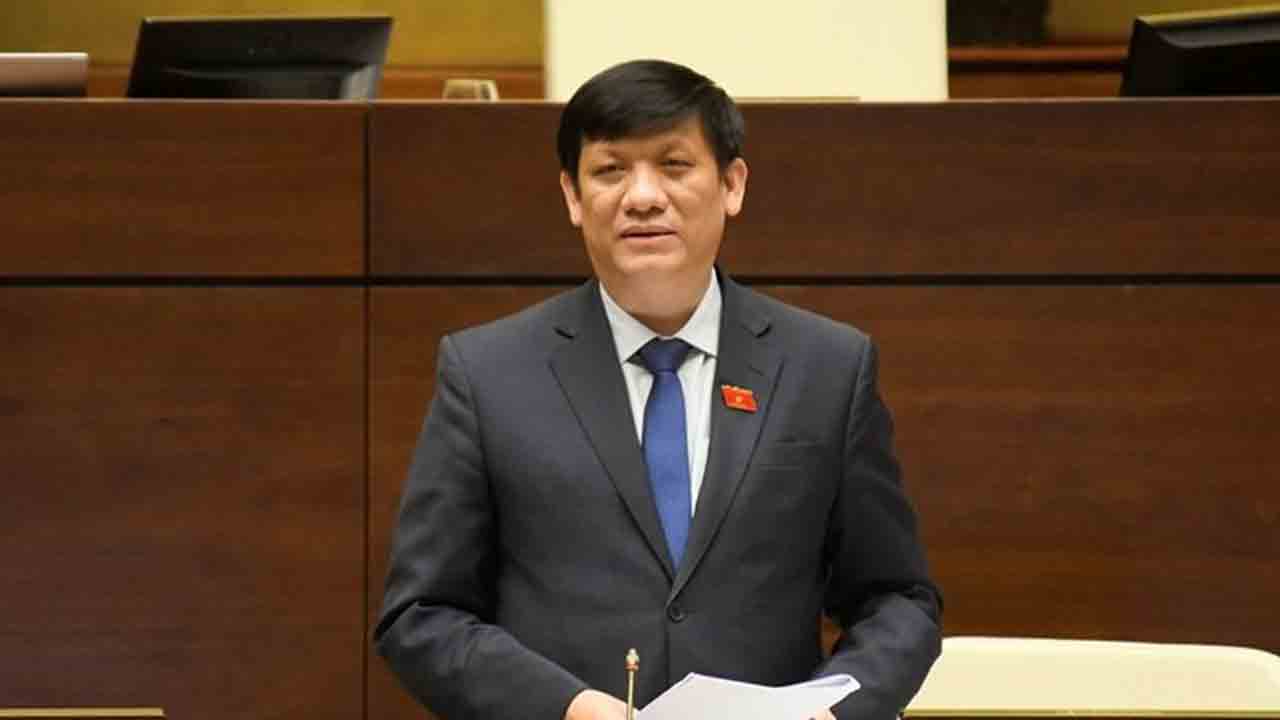HCMC – Localities should not wait for children to be fully vaccinated to reopen schools. Those with a low or moderate risk of pandemic transmission should bravely allow students to return to school, Minister of Health Nguyen Thanh Long said at a question-and-answer session at the ongoing National Assembly’s (NA) second sitting.
The minister said the ministry had launched a vaccination campaign for children aged between 12 and 17. Children of other age groups have a low risk of Covid-19 infection and a lower chance of getting worse from an infection, the local media reported.
Therefore, localities should not be too anxious and limit children from going to school, especially primary students.
The Ministry of Health has also put in place measures to ensure safety at schools.
Minister Long said under the Government’s Resolution 128 on safely and flexibly adapting to and effectively controlling Covid-19, students in low-risk areas can go to school as usual. However, only 22 localities have plans to reopen schools.
As for the vaccination of children, Long said the ministry would strive to launch the vaccination drive nationwide this month.
Expressing concern over the vaccination of children, NA deputy Tran Huu Hau from Tay Ninh Province said there were news reports that vaccines developed based on the mRNA technology could affect the reproductive health and growth of children.
In response, Long said the decision to vaccinate children was taken after working with the WHO, UNICEF and scientists.
The Ministry of Health has also, based on guidelines from the U.S. Food and Drug Administration, allowed the administering of mRNA vaccines for children aged from 12. The Pfizer vaccine has been administered to children in nearly 40 countries.
The vaccine does not change or interact with humans. So the U.S. Food and Drug Administration and Centers for Disease Control and Prevention have affirmed that the vaccine does not affect the reproductive health of children.
All Covid-19 vaccines approved for use in Vietnam meet global standards and the Pfizer vaccine has been discussed with international organizations before being given to children.
Minister Long said Vietnam had accessed Covid-19 vaccine resources early but procured them late due to their scarcity. Some other countries have ordered large volumes, leading to the unfairness in accessing vaccines.
To purchase Covid vaccines, the country must overcome multiple obstacles in regulations and accept sellers’ requirements. The competent local agencies have conducted more than 200 negotiations with vaccine producers and distributors.
He took responsibility for this issue, however, adding that the ministry was coming up with a vaccination plan for next year.
Local Covid-19 vaccines
Regarding when locally-made Covid-19 vaccines will be approved and put into use, Minister Long said the licensing of the vaccines must be in line with the law. The Ministry of Health has minimized administrative procedures, but the vaccines must meet safety and efficacy requirements.
The ministry has established medical ethics and licensing councils, closely coordinating with local vaccine developers to complete dossiers.
The ministry also expected local Covid-19 vaccines to be produced soon so that the country could take the initiative in vaccine resources.
Covid test price turmoil
NA deputy Pham Van Hoa from Dong Thap Province raised concerns over group interests amid the Covid-19 test service price turmoil. Long said medical equipment and bio-products were not subject to price management in line with the Pricing Law, so there were varied prices of products.
The ministry has gradually introduced transparency in the prices of medical equipment and bio-products. Last July, it asked companies to publicize their products’ prices on the ministry’s portal.
Companies were also requested to increase the supply and reduce the prices of products. The ministry has also enhanced the licensing of products, specifically 131 Covid testing bio-products, to improve the competitiveness of manufacturers.
Minister Long admitted that some localities had collected unreasonable prices for testing services. The ministry and the Government have repeatedly asked localities to prevent group interests or other irregularities.
At present, the country has eight quick test kit manufacturers, meeting the demand. The ministry will boost the research of new testing methods via breath and saliva and add test kits to the list of products subject to price management.
In addition, the PCR test equipment has been sufficient. There have been two manufacturers and two other units receiving technology from France to produce the equipment.
Shortcomings in anticipating pandemic developments
Answering a question about the pandemic development forecast by NA deputy Luu Van Duc from Daklak Province, Minister Long said there were many difficulties in forecasting the pandemic’s developments. WHO warned that the pandemic would not end in 2022 and expected it would become a common disease such as the seasonal flu in 2023.
Some other countries have made short-term forecasts as new coronavirus variants have appeared.
The Ministry of Health admitted its shortcomings in forecasting the developments of the pandemic in localities. In the coming periods, the ministry said it would work with WHO to improve the forecast.
The country will adapt safely to the pandemic for the rest of the year and next year, as the number of new Covid-19 cases may rise in some localities. Therefore, cities and provinces should pay more attention to the fight against the pandemic and accelerate the vaccination.











